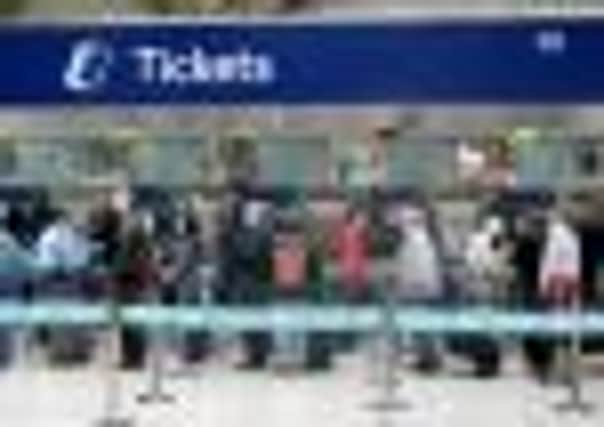Passengers ‘getting poor deal’ from rip-off railways


Too many decisions on rail had come from Whitehall and the rail industry had not been allowed to give the necessary leadership, Sir Roy McNulty told the House of Commons Transport Committee.
But he added that changing the structure of the railways would not help to achieve the 20 per cent to 30 per cent of rail cost savings he had recommended in his 2011 rail value-for-money report to the Government.
Advertisement
Hide AdAdvertisement
Hide AdAnd Sir Roy said the level of rail bosses’ pay and bonuses represented “a relatively small proportion” of the total rail cost bill, with pay increases at board level not dissimilar to those the rail workforce as a whole were getting.
Asked about fears that his report’s recommendation could lead to the loss of 20,000 rail jobs, Sir Roy said 20,000 was “way beyond the calculations we did” and that the figure was “a significant exaggeration of what we did”.
He also denied that safety would be affected by any changes he had recommended but told the committee: “I believe passengers and taxpayers are not getting a good deal (from the railways) at the moment.”
Asked if the level of pay for rail chiefs had been reflected in rail performance, Sir Roy replied: “Far too many of the decisions (on rail) have been taken by Government and the industry has not been allowed, or prepared, to give the leadership that is needed. The responsibility for costs should be primarily on the industry.”
Advertisement
Hide AdAdvertisement
Hide AdAs he outlined in his report last year, Sir Roy told MPs that there was “a substantial efficiency gap” between the UK railways and those of other European countries and said there needed to be better asset management, better procurement, better management of projects and better managing of human resources.
MPs also took evidence from the Rail Delivery Group, comprising industry chiefs who will drive forward rail efficiency.
The group’s chairman, Tim O’Toole, told the committee that the railways represented “a massive success story”.
He went on: “Yes, there is more we need to do. But I think there has been something of a minor miracle on the railways in the last 10 years.”
Advertisement
Hide AdAdvertisement
Hide AdSir David Higgins, the group’s vice-chairman and also Network Rail’s chief executive, said capacity was a major problem on the railways.
He went on: “The public want capacity and there are challenges for us on key routes such as London to Brighton.
“We have no more landing paths. It’s worse than Heathrow (Airport). In Europe, it’s probably only Paris that has this kind of challenge.”
Mr O’Toole said the key test of the drive for efficiency on the railways was “whether the public think they end up with something better at the end of the day”.
Advertisement
Hide AdAdvertisement
Hide AdBob Crow, general secretary of transport union the RMT, told MPs the railways should be renationalised.
“There is no captain of the ship on the railways,” he added. “Railways in Europe are 30 per cent cheaper.”
Mr Crow said the only investment he could see from train companies was in providing more station car parks, while Network Rail and the train companies employed around 300 solicitors who “argued about whose fault it was that trains run late”.
Manuel Cortes, general secretary of transport union TSSA, said the structure of the railways was “fundamentally flawed” and needed fixing, while Mick Whelan, general secretary of train drivers’ union Aslef, said most of the subsidy to train companies went into shareholders’ pockets.
Advertisement
Hide AdAdvertisement
Hide AdLast month more than 100 MPs signed a Commons motion criticising Government proposals for the future of railways. The Early Day Motion warned of worsening services, higher fares and job cuts amid frustration at the amount of investment made as fares “go through the roof”.
MPs who have signed the EDM have urged the Government to run the railway as a “public service” with “affordable fares and proper staffing levels”.